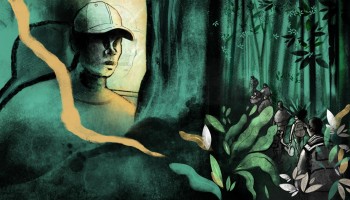According to the state-run Anadolu Agency, the four were caught and taken into custody after they boarded a boat on the Gumbet coast in the south-western province of Mugla on Thursday.
Authorities suspect they are linked to a tragedy that shook the world this week when a picture of the lifeless body of a young boy washed ashore at a Turkish beach resort went viral on the internet, sparking international outrage.
"Where is the conscience of humanity?" asked Turkish President Recep Tayyip Erdogan.
According to BBC, in the early hours of Wednesday, 23 refugees boarded two boats in Turkey's Bodrum peninsula and set off to reach the Greek island of Kos.
For at least half of them, the journey would end at sea that day. The two boats sank shortly after departure.
Turkish authorities have already recovered 12 bodies, while nine people survived the tragedy, reaching the shore with the help of life jackets.
Turkish media traced the identity of the young boy, a three-year-old called Aylan.
The young boy, his five-year-old brother Galip, and their mother, 27-year-old Zahin Kurdi, were Syrian refugees fleeing the intensifying conflict in their home country.
Their bodies were handed over to the children's father, Abdullah Kurdi, who survived the tragedy and was interviewed by journalists from the Guardian.
Kurdi said he remembered climbing with his family onto an overloaded boat operated by a Turkish man.
After a few minutes minutes, he said, the man steering the boat saw high waves and panicked. Kurdi said the man then jumped into the sea.
"I took over and started steering," said Kurdi. "The waves were high and the boat flipped. I took my wife and kids in my arms and realized we are all dead."
He recounted how his children used to wake him every morning to play. "They are gone now," he said.
Kurdi said he had paid 2,000 Euros (US$ 2,224) to human traffickers to try and get his family to safety.
As the war in Syria continues, more and more refugees are attempting to take the risky journey towards European countries.
European governments have reacted in different ways to the crisis, with some insisting they will not facilitate the migrants.
Hungary has built a wall along its border with Serbia.
Meanwhile, many refugees have turned for help to the illegal human smuggling business, which is said to be booming.
The smugglers often make use of dangerous routes across the Mediterranean Sea.
According to the United Nations Refugee Agency (UNHCR), more than 300,000 refugees reached Greece and Italy via the Mediterranean this year, while about 2,500 died or went missing.






